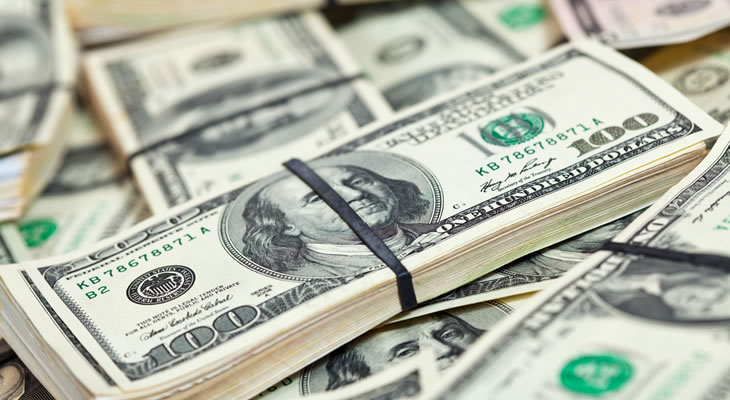Pound to US Dollar Exchange Rate Up as US Dollar Sold from Friday Rally
Towards the end of last week, the US Dollar (USD) saw another jump in demand as the latest US Non-Farm Payrolls report led to softer Federal Reserve interest rate cut bets. Still, the US Dollar’s appeal was limited.
Last week marked the US Dollar’s best week in at least half a month, as GBP/USD was dragged down from its opening levels of 1.2700 to close the week at around 1.2528.
GBP/USD briefly touched on a low of 1.2488 on Friday, the worst level for the pair all year.
Since touching that low, GBP/USD has been rebounding slightly from those levels in profit-taking and is currently holding above the week’s opening levels.
Still, the Pound’s (GBP) potential for gains is limited by persistent no-deal Brexit fears, as well as the rise in Bank of England (BoE) interest rate cut bets seen last week.
Pound (GBP) Exchange Rates Struggle to Rebound from Worst Levels amid BoE Bets
At the end of last week, the Pound to US Dollar exchange rate rebounded slightly from its worst levels as investors bought the Pound from its worst levels and sold the US Dollar from its best levels in profit taking.
However, while investors are buying Sterling back from its worst levels the British currency lacks much in the way of appeal.
Sterling has remained under constant pressure due to fears that Britain’s next Prime Minister could lead the nation towards a worst-case scenario no-deal Brexit outcome.
Those fears only persisted this week, as clear frontrunner Boris Johnson pledged that Brexit would happen by the 31st of October, with or without a deal.
Johnson said:
‘We need a change of direction. That’s why we must treat 31 October as a real deadline for leaving the EU, come what may, not a fake one.’
On top of persisting Brexit fears, the Pound has been hit lower by disappointing UK data leading to bets that the Bank of England (BoE) is actually more likely to cut UK interest rates in the foreseeable future than hike them.
US Dollar (USD) Exchange Rate Rally Cools Following Friday Jump
Last week was the US Dollar’s most bullish week in quite some time, as the latest developments in both geopolitics and US data helped the US currency to mount a slight recovery from its recent lows.
The rebound in US Dollar demand was the primary cause of GBP/USD losses last week.
At the beginning of the week, hopes for US-China trade tensions to continue to improve helped the US Dollar to climb, though concerns remained.
At the end of the week, demand for the US Dollar was further bolstered by a stronger than expected US Non-Farm Payroll report.
The US jobs data showed that more new jobs had been created than expected, dousing market speculation of aggressive US interest rate cuts from the Federal Reserve over the next year.
While the Friday rally inspired by this news was short-lived, hopes for the Fed to take a less dovish than previously expected stance kept the US Dollar fairly steady today.
Pound to US Dollar (GBP/USD) Exchange Rate Await Major US Data with Central Bank Bets in Focus
There is plenty for Pound and US Dollar investors to react to over the coming sessions, especially US Dollar traders, as many key US ecostats are due for publication this week.
With markets betting that the Federal Reserve will cut US interest rates during its July policy decision later in the month, this week’s US data could still pressure the Fed to take an even more dovish stance if it surprises investors.
Tomorrow will see the publication of US business optimism data and job openings data, as well as a speech from Fed Chairman Jerome Powell.
Wholesale inventories, another speech from Powell, and the Fed’s latest meeting minutes data will come in on Wednesday, followed by key US inflation rate data on Thursday.
This US data and Fed news could be the primary cause of GBP/USD movement this week if it surprises investors or influences Fed interest monetary policy speculation.
Pound investors, on the other hand, could be influenced by Wednesday’s UK growth and production data. The Pound to US Dollar (GBP/USD) exchange rate could see a stronger rebound if UK data beats expectations and lightens Bank of England (BoE) interest rate cut speculation.


Comments are closed.